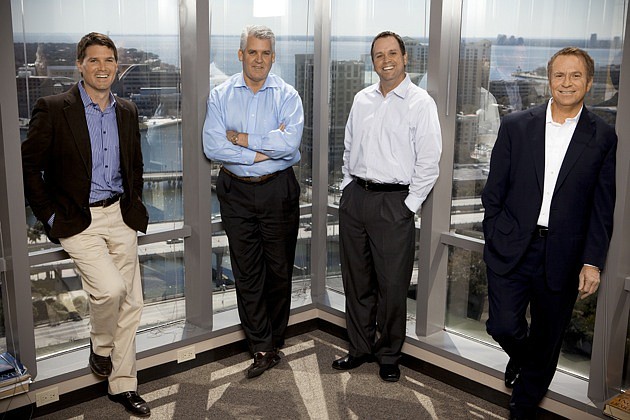- July 26, 2024
-
-
Loading

Loading

Jud Parker is typical of entrepreneurs who know that starting and running their own business is more than a job. When they invest so much of their own resources into a company, running it becomes a way of life.
“I am fully invested in the success of the business,” says Parker, who has only been an entrepreneur less than four years but has seen triple digit growth in his company even in the recession. His description of the experience: “It's an extension of you.”
Parker's first steps into the world of small business ownership came in late 2006. He'd picked up significant experience in legal and software development work in years past, and decided to put that background to use in developing his own company.
That company is Digital Legal Tampa. It's a business built on Parker's combined experiences in software development and legal services that use technology to help lawyers win cases.
As its core competency, the company helps with document discovery, using technology to locate important files within massive databases of larger companies, and then delivering those documents to the right people.
The Review first wrote about Digital Legal in January 2008, after the company brought in $350,000 in revenue in its first full year of operation. Since then, revenues have quickly grown — more than doubling in 2008, up to $850,000 for the year, followed by another year triple digit growth, reaching roughly $2 million in revenue in 2009.
And given early results from 2010, Parker fully expects to double revenues once more.
The rapid early growth is a result of what Parker says feels like instantaneous technological advancements. “The technology is literally changing every 90 days,” he explains.
It's the perfect environment for a young, nimble company. While larger competitors are learning how to use the last iteration of discovery software, Digital Legal is preparing to take advantage of the next new thing.
That's especially important considering how far the software has come in just a few years.
To compare the technology available five years ago to what Digital Legal uses today, Parker cites an example in terms of cost-per-unit of data processed. For instance, for every gigabyte of data his company processed early on for a client, costs would come out to roughly $2,000.
For context, Parker says the amount of electronic files you'd find on an average employee's computer would take up about two gigabytes. That's $4,000 a head.
But today, thanks to an increased ability to pull the interesting data out from the less important, processing a gigabyte of data often costs just $200.
The dramatic reduction in cost has helped Digital Legal's services appeal to a wider customer base. “We're democratizing this whole process,” Parker explains. “It's filtered down from Goliath versus Goliath to David versus David.”
Of course, lower costs have some negative side effects, too; namely, they force the business to rapidly expand its customer base to make up for lost revenue.
At the same time, cheaper software means more competitors. So not only does Parker's company have to find more clients — it has to do so while beating out more and more competitors.
To stay on top, Parker is utilizing a strategy so often cited by company leaders: “I'm just surrounding myself with people that are smarter than me.”
Humility aside, Digital Legal is benefiting from the talent of individuals such as Ralph Barber, former chief information officer at Holland & Knight, in more ways than just talent.
It's those key players' existing relationships within the industry that help the company keep its edge.
Like the ones brought in by Kevin Branagan, a former division president for Houston-based US Legal Support, Inc., or those of Nick Carter, who worked as a consultant on the historic Big Tobacco class action suit.
Parker hopes his company is able to sustain its growth pattern, and eventually become a major presence in the region's legal industry. “We want to be a 15- to 20-million dollar player,” he says.
As Digital Legal expands its reach within the Tampa Bay area, it will next look to Orlando, and is considering using an acquisition to propel the next expansion phase. From there, Parker's short list of target markets includes Miami, Tallahassee, and Atlanta.
But grow too much, and the company might lose what is perhaps its greatest strength. Parker knows Digital Legal must maintain its maneuverability. If the business gets too big, “We lose the ability to navigate uncertain waters,” he says.
Given the industry's short history thus far, that ability is key. “There's always a game changer around the corner,” Parker says.
— Alex Walsh